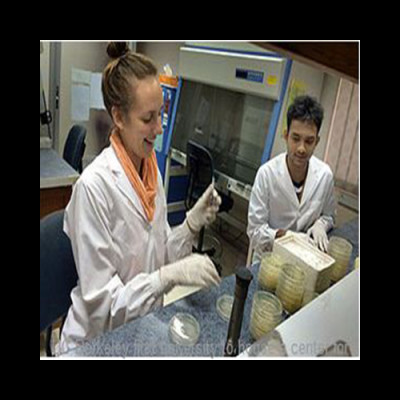UC Berkeley first to have Bangladesh studies centre

Improving garment-industry safety, designing apps to solve social problems and gathering data on antibiotic-resistant bacteria found on fruits and vegetables: These are among the innovative research projects made possible by University of California, Berkeley’s new Subir & Malini Chowdhury Centre for Bangladesh Studies.
Monday, March 30, marks the official opening of the centre, with Chancellor Nicholas Dirks presiding over an invitation-only ribbon-cutting at the campus’s Institute for South Asia Studies, reports UC Berkeley.
The ceremony will be followed by a talk on Bangladesh’s “quiet revolution,” by Sir Fazle Abed, founder and CEO of BRAC, considered the world’s largest NGO as measured by number of employees and number of people served.
“The centre will strengthen UC Berkeley’s leadership in the realm of South Asia scholarship and help us expand our ties with a growing nation that is rapidly becoming a vital player on the world’s economic and political stage,” said Dirks.
“The centre will be integral to our efforts to study and develop solutions to challenges that know no national border.”
Chowdhury centre director Sanchita Saxena, who also leads the Institute for South Asia Studies, called it fitting that Abed will be featured speaker at the center’s inauguration: “Abed’s vision and innovation have changed the development landscape, providing hope to millions around the world. This center embodies that hope, promoting research and scholarship that will help Bangladesh reimagine its future.”
Subir Chowdhury, whose foundation provided the $1 million gift that made the centre possible, left Bangladesh in the 1990s for graduate studies in the United States. He later went on to achieve fame as an expert on quality in the automotive industry, and is now a quality-management strategist and CEO of ASI Consulting Group.
The centre is the first of its kind outside of Bangladesh, said Chowdhury. He hopes it will “become an independent global voice positively affecting the quality of life of people in Bangladesh.”
The launch of the centre closes a two-decade circle for Chowdhury and Raka Ray, chair of the Department of Sociology and professor of South and Southeast Asia studies at UC Berkeley. Ray’s 1993 plea to Chowdhury, for help to establish a Bangla language programme, led to his crucial donation.
“I had no money then,” Chowdhury said. But he promised himself that if he ever did, he would “help her cause.”
The centre is currently screening applications from scholars seeking to work in Bangladesh as part of their studies. Independent University in Dhaka will host two research interns, one to investigate garment-industry safety and the other to examine the role of women in business. Technohaven, a software and system-integration company, also in Dhaka, will host a third intern to work on a Web or mobile application aimed at solving a social problem.
MPH student Caitlin Cook is an inagural fellow of UC Berkeley's new center for Bangladesh studies: http://t.co/dPiFiRIouo
— Berkeley Health (@UCBerkeleySPH) March 26, 2015
Caitlin Cook, one of the centre's two inaugural fellows, worked at a top health research center on what she calls “a public-health crisis that knows no borders.” With researchers at Dhaka’s International Centre for Diarrhoeal Disease Research, Bangladesh, she helped gather data on antibiotic-resistant produce-borne bacteria.
With aid of a million-dollar gift, #UCBerkeley becomes home to center for Bangladesh studies http://t.co/YrvgxjOclT pic.twitter.com/AqD1p8Nihi
— UC Berkeley News (@UCBerkeleyNews) March 25, 2015
“I got a real appreciation for the talent of Bangladeshi researchers and the quality of the work they’re doing there,” said Cook, who is currently completing a master’s degree in public health at UC Berkeley. ”This fellowship has really put me on the right track to work in global health.”
Berkeley’s Bangladesh studies centre is also developing an exchange programme for faculty and students at UC Berkeley and BRAC University, in Dhaka, as well as a summer study-abroad programme at the Asian University for Women in Chittagong, Chowdhury’s hometown. In October, the centre will co-host UC Berkeley’s second Bangladesh Development Initiative conference.


 For all latest news, follow The Daily Star's Google News channel.
For all latest news, follow The Daily Star's Google News channel. 



Comments